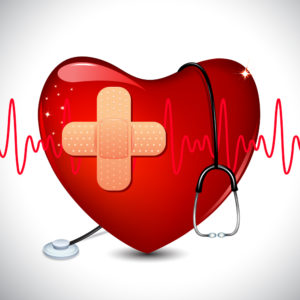MILLER: ‘Holiday Heart Syndrome’ Can Make the Season One You Won’t Want to Remember

December is traditionally the biggest party month of the year, with Christmas and Hanukkah celebrations capped by New Year’s Eve. Unfortunately, it’s also a boom time for visits to urgent care or the emergency room because of an unwelcome visitor: Holiday Heart Syndrome.
No, it’s not a sentimental, saccharine presentation on the Hallmark channel or the shape of tree ornaments; Holiday Heart Syndrome is a potentially severe health malady.
The term was coined in 1978 to explain the sudden spike of patients visiting emergency rooms during the holidays with complaints of an irregular heart rhythm called atrial fibrillation, or AFib. (It also applies to any non-holiday situation marked by heavy-duty partying, such as cruises with unlimited buffets and open bars.)
The condition is marked by a rapid or irregular heartbeat that often feels like a pounding, fluttering or quivering in the chest. It reduces the normal pumping ability of the heart, and it promotes the formation of blood clots, increasing the risk of stroke, heart failure and other cardiac complications. The accompanying symptoms may include lightheadedness, shortness of breath, fatigue and chest pain.
What predisposes one to AFib? Risk factors include high blood pressure, coronary artery disease, lung disease, smoking, sleep apnea, and obesity. And it can be precipitated by many of the things we love about the holiday season — the consumption of lots of rich, high-salt foods and, especially, alcohol. Detrimental effects of alcohol on the heart include a decrease in myocardial contractility (the ability to pump blood), elevated blood pressure (which forces the heart to work harder), and abnormal rhythms.
AFib markedly increases the likelihood of a stroke, heart failure and dementia. If it is left untreated, the probability of stroke increases fivefold, according to the American Heart Association, and the likelihood of death from heart failure doubles.
A cocktail, or three, and a few glasses of wine during dinner, and then a nightcap can cause you to fall victim to Holiday Heart Syndrome — especially if you top off those excesses with physical exertion like shoveling snow. That combination of stresses can put a significant — and probably unaccustomed — burden on your heart.
There are ways to reset the heart’s abnormal AFib rhythm, such as drugs, electric shocks, or surgical procedures, and blood thinners can decrease the likelihood of dangerous clots, but prevention is the best course.
As is often the case with disease prevention, common sense and moderation are the watchwords. Know your limits and susceptibilities. As we age, the ability to clear alcohol decreases while sensitivity to it increases. Alcohol is a carbohydrate, so it can cause significant blood sugar fluctuations in people with diabetes.
A helpful strategy if you’re going to a big food and alcohol binge in the evening is to eat lighter meals earlier in the day and avoid gorging at the event. If the cocktail “hour” is long, consider opting for a non-alcoholic beverage between alcoholic ones.
Especially at a time when viral respiratory diseases are causing an uptick in visits to emergency rooms, it’s wise to be cautious about your health. Make this holiday season one you’ll want to remember.


